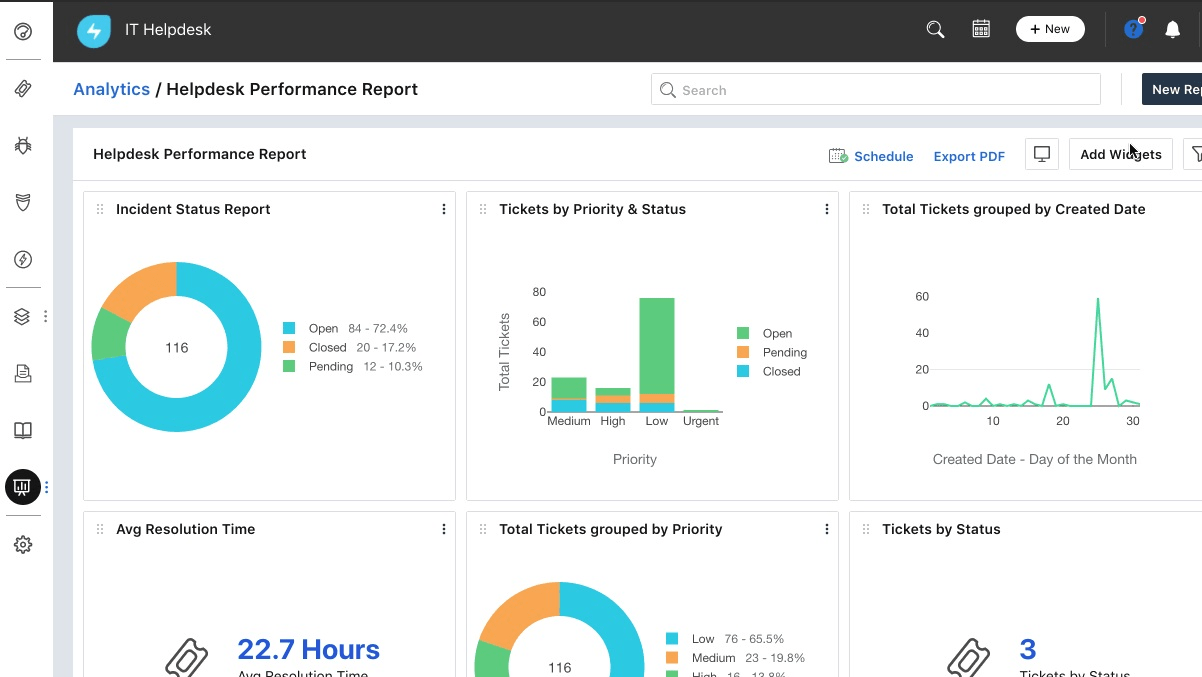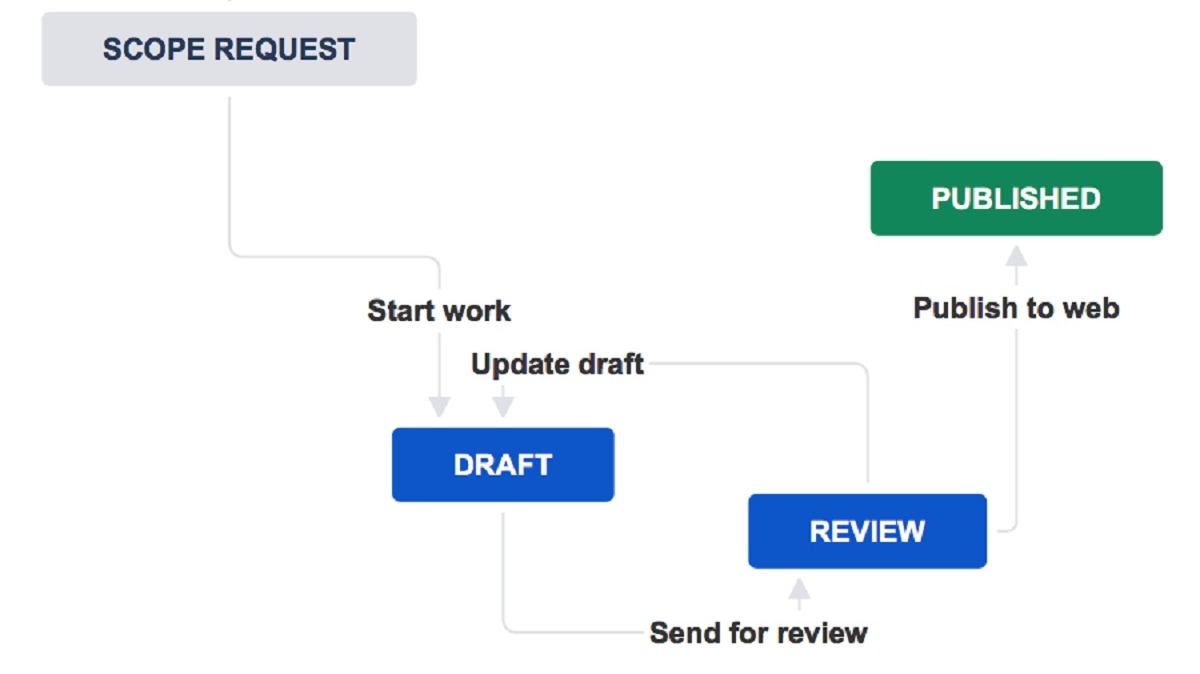Freshservice vs Jira: Picking the ideal IT service management software
- 01Freshservice vs Jira: overview
- 02What's the difference between Freshservice and Jira?
- 03Freshservice pros and cons
- 04Jira pros and cons
- 05Freshservice compared to Jira
- 06Jira compared to Freshservice
- 07Features comparison
- 08Freshservice vs Jira: Which is the best for your business?
- 09Promotions on IT Management software
- 10Alternatives to Freshservice & Jira
Save up to $20 on Freshservice
Save up to $20 on Freshservice
IT service management (ITSM) tools are vital for organizing, tracking, and resolving IT service requests in today’s technologically driven business environments. With features such as ticket management, knowledge bases, and workflow automation, these platforms are designed to enhance efficiency and improve the user experience. But with so many ITSM solutions on the market, selecting the right one can be a challenge.
To assist you, we compare two of the leading ITSM tools: Freshservice and Jira. In this article, we delve into their features, user-friendliness, and pricing. While both platforms offer a range of standard ITSM functionalities, they each possess unique features and benefits. Grasping these distinctions can guide you in determining which tool aligns best with your organizational needs.
Freshservice vs Jira: overview
Freshservice and Jira are top contenders in the world of IT service management (ITSM) and issue tracking platforms, each presenting unique features and strengths suited to diverse user needs.
Freshservice is lauded for its user-friendly interface and streamlined service desk functionalities. It provides an intuitive platform for managing IT service requests and incidents, making it easier for teams to collaborate and resolve issues. Conversely, Jira, known primarily for its issue and project tracking capabilities, offers robust workflow customizations, extensive integrations, and detailed reporting tools. It serves teams of all sizes, ensuring flexibility and scalability as operational demands evolve.
Now, let's delve into the Freshservice vs. Jira comparison to guide you in making a well-informed decision on the most appropriate platform for your organization's unique requirements.
What's the difference between Freshservice and Jira?


Freshservice and Jira are two service desk tools that businesses can use to handle requests, resolve incidents, and track tickets.
Freshservice stands out because it offers channels of communication such as chat, voice calls, email, and an online portal. This allows for communication-related to incidents. It also. Routes communications based on the seriousness of the problem and keep a record of all incidents for reference. Additionally, Freshservice uses AI technology to identify trends and underlying issues by automatically connecting incidents with patterns and problems for further investigation. Freshservice offers a set of asset management tools built on top of an integrated Configuration Management Database (CMDB). It facilitates the creation of a source CMDB for hardware, software, and SaaS assets by utilizing real-time connectors with discovery solutions, identity providers, and endpoint management tools. With its platform, Freshservice allows management of the entire lifecycle of assets while enhancing IT governance through the tightly integrated service delivery.
On the other hand, Jira Service Management Cloud integrates seamlessly with Opsgenie. It acts as a ground between incident management solutions like monitoring tools, log systems, ticketing systems, and chat tools. Jira provides features that follow ITIL-approved setups, including issue classes, processes, and templates. Moreover, Jira enables the creation of schedules for teams, allowing automatic tracking of incidents through customizable workflows. Jira utilizes a data structure that allows teams to easily handle any types of assets. It offers tracking of ownership and lifecycle management leading to savings in both time and cost. Additionally Jira includes features, for monitoring inventory discovering assets and conducting asset reviews. It also enables importing of asset information from file formats and seamless integration with third party tools and applications.
Both Freshservice and Jira highlight their ability to adapt to the changing IT landscape while accommodating types of businesses. Freshservice excels in its communication channels and AI technology for incident detection and correlation. Meanwhile,Jira stands out with its features integration capabilities with Opsgenie. Moreover, both tools provide asset analytics to assist in making informed decisions by monitoring the lifespan of assets and estimating IT expenditures. This encompasses keeping a record of purchases, contracts, and spending on SaaS.
14-day free trial on Freshservice
Get 14-day free trial on Freshservice and up to $20 savings with Secret.
Freshservice pros and cons
What are the advantages of Freshservice?
- Intuitive interface: Freshservice boasts a clean, user-friendly interface, which makes navigating through the various IT service management functions a breeze even for non-technical users.
- Service catalog: Freshservice offers a service catalog feature, allowing IT departments to list all available services in one place, making it easier for users to request services and for teams to manage these requests.
- Asset management: The platform offers integrated IT asset management capabilities, making it easy to track and manage IT assets, including hardware, software, and other inventory.
- Automation capabilities: Freshservice comes with robust automation tools, allowing IT teams to streamline ticket assignments, responses, and other repetitive tasks.
- Integration options: Freshservice offers integrations with a variety of third-party applications, which enhances its functionality and allows for a more cohesive IT service management environment.
What are the disadvantages of Freshservice?
- Pricing: As you add more features and move to higher plans, Freshservice can become expensive, especially for smaller organizations or teams on a tight budget.
- Customization limitations: While Freshservice is quite flexible, there are some limitations in terms of customizing the platform to fit very specific organizational needs.
- Performance issues: Some users have reported occasional slowdowns or performance hiccups, especially when dealing with a large volume of tickets or during updates.
- Mobile app limitations: While Freshservice offers a mobile app, it might not have all the features available on the desktop version, and some users find the mobile experience not as smooth.
- Reporting features: While Freshservice does offer reporting tools, some users feel that these tools could be more robust or offer more detailed insights, especially compared to some competitors.
Compare Freshservice to other tools
Jira pros and cons
What are the advantages of Jira?
- Versatility: Jira is adaptable to various methodologies, from Scrum to Kanban to mixed methodologies, making it suitable for different types of projects and teams.
- Extensive integration: Jira integrates well with numerous third-party tools and platforms, enhancing its functionality and allowing teams to create a cohesive environment.
- Customizability: Jira offers a high level of customization for fields, workflows, and more, enabling teams to tailor the platform to their specific project requirements.
- Robust reporting and dashboards: With Jira, teams can generate detailed reports, charts, and dashboards, offering insights into project progress, team performance, and other metrics.
- Marketplace add-ons: The Atlassian Marketplace has a vast collection of plugins and add-ons, further extending Jira's capabilities to fit a variety of specialized needs.
What are the disadvantages of Jira?
- Learning curve: Jira's extensive features and customizations can make it somewhat challenging for newcomers to grasp, leading to a steeper learning curve, especially for non-technical users.
- Performance issues: As the complexity of projects increases or with an accumulation of large data, some users have reported performance slowdowns in Jira.
- Pricing: While Jira offers a range of pricing plans, costs can add up as teams grow, and when premium features or additional plugins are required.
- Complexity for simple projects: For teams or organizations with straightforward and simple projects, Jira might feel over-complicated or cumbersome.
- Configuration overhead: Due to its high customizability, setting up Jira (especially workflows and permissions) can be time-consuming and requires careful planning.
Compare Jira to other tools
Freshservice compared to Jira
Freshservice and Jira are both prominent tools in the realm of IT service and project management. Freshservice, designed as an IT service desk solution, excels in incident, problem, and change management, ensuring smooth IT operations. It provides a user-friendly interface with automation capabilities that simplify ticketing processes.
Jira, on the other hand, is more known for its robust project management and issue tracking features. Geared towards software development teams, Jira facilitates agile methodologies like Scrum and Kanban. While both tools have overlapping functionalities, the choice between them largely depends on whether your primary need is IT service management or agile project tracking.
Is Freshservice better than Jira?
Determining if Freshservice is better than Jira depends on the specific needs of a team or organization. Freshservice shines as an IT service desk solution, streamlining IT operations with intuitive ticketing, asset management, and automation. It's tailored for businesses looking to enhance their IT support processes.
Jira, on the other hand, is a powerhouse for project management and issue tracking, especially for software development teams adopting agile methodologies. While Freshservice focuses on IT service management, Jira centers on project progression and tracking. Thus, "better" is subjective, hinging on whether the primary need is IT service management or agile project oversight.
What is Freshservice best used for?
Freshservice excels as an IT service desk solution, perfectly suited for organizations seeking streamlined IT operations. It offers comprehensive incident, problem, and change management capabilities, ensuring the efficient resolution of IT issues.
Freshservice stands out for its user-friendly interface, making ticketing processes intuitive. This tool is particularly valuable for maintaining organized IT workflows, enhancing communication between IT teams and end-users, and ensuring prompt issue resolution. It empowers IT departments to deliver top-notch service and support, ultimately contributing to enhanced productivity and customer satisfaction.
Can Freshservice replace Jira?
The possibility of replacing Jira with Freshservice depends on your organization's specific needs. Freshservice is tailored for IT service management, focusing on incident tracking and resolution. On the other hand, Jira is a robust project management and issue tracking tool, well-suited for software development teams that follow agile methodologies.
While both tools offer some overlapping functionalities, Freshservice is better aligned with IT support and service management requirements, whereas Jira excels in project management and issue tracking, particularly for software development projects.
Is Freshservice cheaper than Jira?
Comparing the cost of Freshservice and Jira necessitates a thorough assessment of usage and feature requirements. Freshservice’s pricing typically offers competitive pricing with various plans designed to accommodate diverse organizational needs. Jira's pricing, however, can vary significantly based on factors like deployment choices and user tiers.
While Freshservice may present cost advantages for certain organizations, it's essential to carefully evaluate specific feature needs and user volumes to determine the most cost-effective choice for your organization.
Is there a better IT Management software than Freshservice?
While Freshservice is a strong contender in the realm of IT service management, it's crucial to explore whether a more suitable solution exists for your unique requirements.
Notable alternatives to Freshservice in the IT service management space include ServiceNow, Zendesk, BMC Helix, and Jira Service Management. The choice hinges on your organization's specific IT service goals, scalability requirements, and the feature set that aligns most effectively with your service management strategy and objectives.
14-day free trial on Freshservice
Get 14-day free trial on Freshservice and up to $20 savings with Secret.
Jira compared to Freshservice
Jira and Freshservice are prominent tools in IT service management and project tracking. Jira, favored by software development teams, excels in agile project management and issue tracking.
In contrast, Freshservice is tailored for IT service desks, emphasizing incident, problem, and change management. The choice between them hinges on your primary focus, with Jira best-suited for project management and Freshservice optimizing IT support operations.
Is Jira better than Freshservice?
Deciding whether Jira is better than Freshservice depends on your specific requirements. Jira shines in agile project management and issue tracking, making it an ideal choice for software development teams.
Freshservice, on the other hand, excels in IT service management, streamlining IT support processes. The determination of what's "better" depends on whether your primary emphasis is on project management or IT service support.
What is Jira best used for?
Jira is best used for agile project management and issue tracking, particularly favored by software development teams. It facilitates project planning, tracking, and collaboration, ensuring teams stay aligned and projects progress smoothly.
Jira offers extensive customization options, workflow configurations, and integrations, making it invaluable for managing complex software development projects. Its versatile features empower teams to adopt agile methodologies such as Scrum and Kanban, enhancing productivity and project visibility.
Can Jira replace Freshservice?
The feasibility of replacing Freshservice with Jira depends on your organizational requirements. Jira excels in agile project management and issue tracking, making it an excellent choice for project-centric teams.
Freshservice, however, is designed for IT service management, with a focus on incident resolution and support processes. While there may be some overlap, the decision revolves around whether you prioritize project management or IT service support within your organization.
Is Jira cheaper than Freshservice?
Comparing the cost of Jira and Freshservice involves careful consideration of several factors. Jira offers varying pricing models, and the costs can fluctuate significantly depending on factors like deployment choices and user tiers. It can be a cost-effective choice for certain scenarios, especially for software development teams requiring its robust features.
On the other hand, Freshservice typically offers competitive and straightforward pricing, with different plans designed to cater to various organizational sizes and requirements. While it may have cost advantages for many organizations, the decision ultimately hinges on the specific feature needs, user volumes, and deployment preferences within your organization.
Is there a better Collaboration software than Jira?
While Jira is a robust choice for project management and issue tracking, it's essential to explore whether a more suitable solution exists for your unique requirements.
Notable alternatives to Jira in the project management and issue tracking realm include Trello, Asana, ClickUp, and Monday.com. The choice hinges on your preferred project management style, scalability prerequisites, and feature preferences, ensuring a harmonious fit with your organization's project tracking strategy and objectives.
Features comparison
Freshservice has the upper hand in SLA Management against Jira

When it comes to Service Level Agreement (SLA) management, Freshservice emerges as the standout choice. This feature empowers businesses to not only meet but exceed their service level agreements effortlessly. Freshservice achieves this by tracking and prioritizing tickets based on various criteria, including urgency and due dates. For example, it allows support teams to ensure that high-priority tickets receive prompt attention while providing customers with timely resolutions.
On the other hand, Jira, although renowned for its robust issue tracking capabilities, lacks a dedicated feature for SLA management. While Jira excels in various aspects of project and issue management, Freshservice's specialized focus on SLA management makes it the preferred tool for organizations that prioritize service excellence and adherence to strict service level agreements.
Freshservice Excels at Service Desk IT Compared to Jira

When it comes to Service Desk IT features, Jira is acknowledged for its powerful issue tracking capabilities. However, Freshservice takes a step further by offering a seamless transition to modern, ITIL-aligned service desk software. Freshservice's approach requires minimal training, ensuring an effortless integration with your existing systems. This translates to less time spent on learning new software and more time dedicated to addressing customer needs.
For example, Freshservice's intuitive interface allows IT teams to efficiently manage incidents, problems, and changes while maintaining a high level of customer satisfaction. On the other hand, Jira's strength lies in its robust issue tracking capabilities, making it an ideal choice for project-centric organizations. The choice between Freshservice and Jira hinges on your IT service desk requirements and the ease of integration with your existing systems.
Freshservice and Jira are balanced in Reporting and Analysis

Both Freshservice and Jira have strong reporting and analysis functions. Freshservice provides the advantage of predefined or customizable service desk-wide reporting capabilities. These features empower teams to monitor service desk performance efficiently. For instance, teams can track incident resolution times, customer satisfaction metrics, and other key performance indicators. These insights enable informed decision-making and continuous service improvement.
Conversely, Jira boasts robust reporting and dashboard features that extend beyond service desk operations. Teams can leverage these tools to track project progress, analyze data, and gain valuable insights into project performance. For example, agile teams can monitor sprint velocity and backlog trends, facilitating agile project management.
Freshservice Proves More User-Friendly than Jira

Freshservice stands out for its intuitive and user-friendly design, making it an excellent choice for businesses new to service desk solutions. Its user interface encourages seamless navigation and rapid onboarding, reducing the time needed to get up to speed. Freshservice excels in automating complex processes, resulting in a highly efficient workflow that enhances productivity.
Conversely, Jira offers robust capabilities but can be daunting for beginners. Its complex interface may pose challenges, particularly during initial use, leading to a steeper learning curve. Consequently, setting up and adapting to Jira may require more time, potentially impacting project execution speed. The choice between Freshservice and Jira largely hinges on your team's familiarity with service desk tools and the trade-off between user-friendliness and advanced features.
Jira outperforms Freshservice in Custom Workflows

In the realm of Custom Workflows, Jira stands as the undisputed champion. It empowers teams to craft custom workflows that precisely define stages and transitions within their projects. This unparalleled level of customization ensures that Jira can be tailored to fit the unique project management needs of any organization. For instance, software development teams can design workflows that align with agile methodologies like Scrum or Kanban, streamlining their processes for optimal efficiency.
On the other hand, while Freshservice excels as an IT service management solution that consolidates and streamlines IT services, it doesn't offer the same extensive customization options for workflows that Jira does. Organizations seeking highly specialized project management workflows may find Jira to be the superior choice for tailoring their processes to perfection.
Jira Stands Out in Agile Project Management Over Freshservice

When it comes to Agile Project Management, Jira takes the lead. While Freshservice offers project management capabilities, Jira's forte lies in its laser-focused approach to agile methodologies, including Scrum and Kanban. Jira provides an array of features tailor-made for agile project management, such as sprint planning, backlog management, and agile boards. These functionalities make Jira a comprehensive and intricate tool for managing agile projects.
For instance, Jira's agile boards enable teams to visualize and track their work in progress, fostering transparency and collaboration. In contrast, Freshservice, while capable in project management, may lack the depth and precision required for complex agile projects. The choice between Freshservice and Jira depends on your project management style, with Jira excelling in agile methodology intricacies.
Jira’s Integrations Capabilities are More Extensive Compared to Freshservice

In terms of integration capabilities, both Freshservice and Jira offer robust options, but Jira takes the lead in this aspect. Jira boasts an expansive ecosystem with deep integrations into key software development tools, including Confluence, Bitbucket, GitHub, and Bamboo. This makes it an exceptional choice for software development teams seeking seamless collaboration and streamlined workflows, ultimately enhancing the development process.
On the other hand, Freshservice offers integrations with several third-party tools such as Slack, MailChimp, and Google Workspace. While these integrations are effective for customer support and general business operations, Freshservice's limited integration scope with software development tools like Jira's narrows its suitability for tech-centric organizations. Therefore, the choice between Freshservice and Jira largely depends on your organizational focus, with Jira excelling in software development integration and Freshservice catering more broadly to customer support roles.
Subscribe to our newsletters.
No FOMO here. Stay up-to-date on all the latest deals and news with our monthly newsletter straight to your inbox like 126,000+ entrepreneurs (+ Get 10% off on on our Premium Membership!)
Freshservice vs Jira: Which is the best for your business?
Freshservice is the best tool for you if:
- You value a unified IT service desk solution that streamlines ticketing, asset management, and IT project management under one platform.
- An intuitive user interface is essential, given Freshservice's design-centric approach that enhances user experience and aids quick adoption.
- You need out-of-the-box ITIL-ready modules to ensure best practices in incident, problem, change, and release management.
- Integration with third-party apps is crucial, as Freshservice offers a marketplace with numerous integrations, enhancing its functionality and flexibility.
- You prioritize gamification features, with Freshservice's "Arcade" fostering agent productivity and engagement through rewards and leaderboards.
Jira is the best tool for you if:
- You're looking for a robust project management platform optimized for agile methodologies like Scrum and Kanban workflows.
- Extensive customization and scalability are top priorities, given Jira's adaptable workflows, custom fields, and configurations.
- You need a tool that integrates seamlessly with a suite of software development tools, especially Atlassian's product range.
- Real-time collaboration is vital, as Jira's platform facilitates team communication, feedback loops, and shared visibility on progress.
- You value detailed reporting and analytics, since Jira provides comprehensive dashboards, charts, and metrics to track project milestones.
14-day free trial on Freshservice
Get 14-day free trial on Freshservice and up to $20 savings with Secret.
Alternatives to Freshservice & Jira
Promotions on IT Management software
Start saving on the best SaaS with Secret.
Secret has already helped tens of thousands of startups save millions on the best SaaS like Freshservice, Jira & many more. Join Secret now to buy software the smart way.













